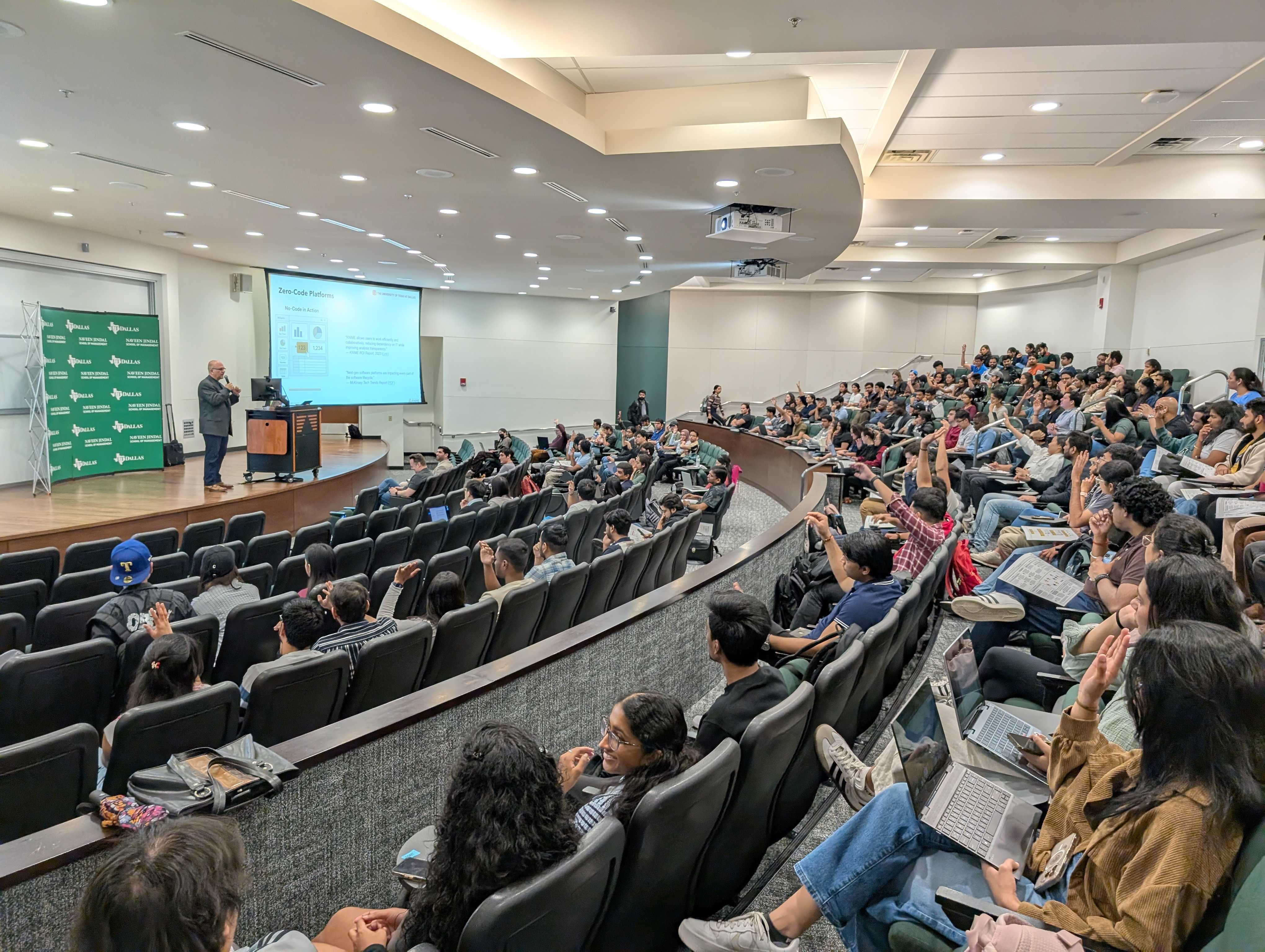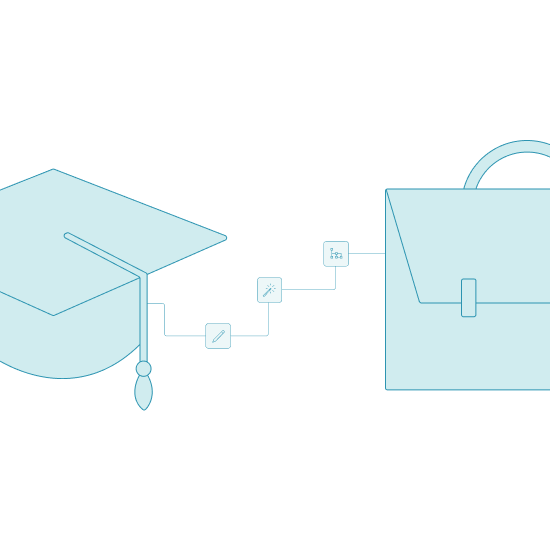At KNIME, we believe that students learn best when they're working on meaningful problems—problems with complexity, relevance, and the potential for real-world application. That’s exactly what happened in the spring of 2025, when Professors Sunela Thomas, Gasan Elkhodari, and Rabih Neouchi from the University of Texas at Dallas partnered with us to launch a student challenge focused on customer churn prediction.
This wasn’t just a class project, but a competitive, team-based initiative built around actual business data. The challenge gave students a chance to apply their knowledge of analytics, machine learning, and data visualization in a setting that closely mirrors industry practice.
And for the top-performing team, it opened the door to a summer internship at KNIME.
A real-world problem, solved by students
The challenge asked students to address a common and critical issue in the telecommunications industry: customer churn. Working in teams of three, 18 groups used KNIME to develop strategies and build workflows combining data visualization, data engineering, and classification techniques that would reduce customer attrition.
The results were impressive—not only for their technical rigor, but for how well the students communicated their insights. Three teams stood out:
First Place: A Data App Ready for Deployment—Kousalya Sai Ramya Javvadi, Riddhima Ramasahayam Reddy, and Debasmita Ray.
The team developed a fully engineered data app for churn prediction with encompassing analyses including BART and intuitive visualizations. Their analyses and data-driven insights were clearly explained and the data engineering steps to clean the data were sound and well documented.
Second Place: xAI techniques over classified examples—Rupak Manikonda, Monish Seelam, and Vikas Kumar Reddy Ulchala
This team implemented a sophisticated exploratory analysis on the data that guided many of their proposed insights. They also carefully adjusted the dataset to minimize the impact of data imbalance in the classification, and used xAI techniques to explain a few predictions.
Third Place: GenAI and clustering techniques—Niranjan Arkadu, Nagarajan Thandayutham, and Abin Roy
These students included generative AI and clustering techniques to their solution, adding more angles to their actionable insights. They also explored feature selection techniques and added initial support to email sending, hinting at deployment.
All three teams received digital badges, trophies, full access to KNIME certification courses, and KNIME gear. But it was the first-place finishers who saw the most tangible outcome: a KNIME internship.

Internships that started with a workflow
After their win, Debasmita Ray and Kousalya Sai Ramya Javvadi joined our Evangelism team for the summer, helping us connect with more students and educators worldwide. Their teammate, Riddhima Ramasahayam Reddy, will join KNIME’s Customer Care department in July.
This internship opportunity didn’t come from a résumé or a referral. It came from a project—one that demonstrated technical skill, creativity, and the ability to work as a team under realistic constraints.
Student challenge collaboration with purpose
This Customer Churn Prediction challenge grew out of a broader collaboration between KNIME and UT Dallas. Earlier in the year, Professors Elkhodari and Neouchi hosted a KNIME Data Connect event on campus, featuring a learnathon and an invitation to the hackathon-style challenge. Over 200 MS and MBA students attended, and 18 teams were selected to participate based on the submitted forms.

The challenge format—real data, structured mentorship, and an end goal —brought out the best in the participants. It wasn’t about rote learning. It was about thinking critically, communicating clearly, and delivering results.
Why the student challenge format matters
Educational initiatives like this show what’s possible when academic learning meets industry-relevant tools and challenges. Students walk away with more than grades—they gain portfolio-ready projects, professional connections, and, in some cases, career opportunities.
We’re grateful to Professors Thomas, Elkhodari, and Neouchi for helping make this happen and to all the students who showed what they could do with KNIME.
This was more than a class. It was a launchpad!
About University of Texas at Dallas: The University of Texas at Dallas (UT Dallas) is a dynamic public research university located in Richardson, Texas, founded in 1969. Classified as an R1 doctoral institution with very high research activity, UT Dallas has rapidly grown to serve over 31,000 students on its 500-acre campus. The university is organized into eight schools offering more than 140 academic programs and is recognized for its strong commitment to innovation, interdisciplinary learning, and industry partnerships.
Its renowned faculty and diverse student body—representing all 50 U.S. states and over 100 countries—contribute to a collaborative, technology-driven environment that prepares graduates to excel in fields ranging from science and engineering to business and the arts. Guided by its mission to provide excellent and innovative education and research, UT Dallas aims to graduate well-rounded citizens ready to lead productive, rewarding lives and to drive economic and technological advancement in a rapidly evolving global society.
About KNIME’s Educators Alliance: KNIME’s Educators Alliance collaborates with educators to run the KNIME student challenges, bringing gamification into the teaching of data science, analytics, and AI. The challenges take the form of a project, executed individually or in teams, and the best solutions are recognized by an award. Rooted in real-world data, the challenges foster collaboration and constructive competitiveness between learners. The top award for some of these challenges is a company internship.
